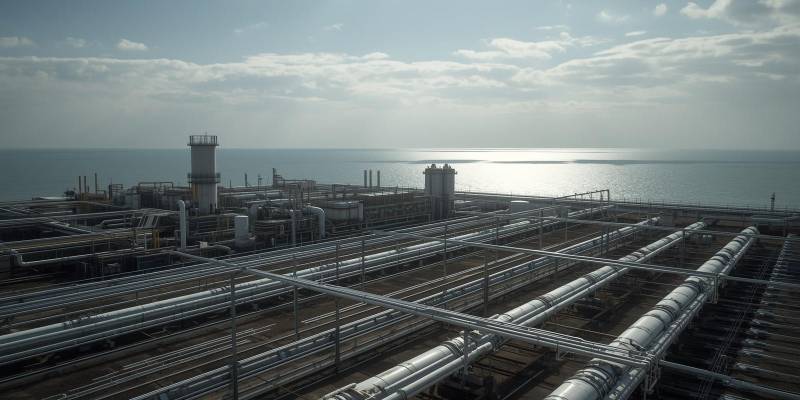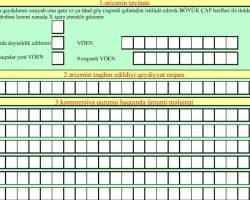The long-standing “Gas Supply Law” of the Republic of Azerbaijan will be replaced by a law of the same name adopted on August 19, 2025. This law will enter into force on January 1, 2026, and some of its provisions will be implemented in stages until July 2028, envisaging a fundamental restructuring of the sector. To understand this fundamental change, it is important to examine the following differences between the old and new laws:
Gas supply activities will no longer be under the authority of a single entity. The most striking change is the transition from the broad concept of “gas supply activity” in the old law to the more precisely defined and segmented concept of “gas supply sector.”
The old law broadly defined the concept of “activity in the gas supply field.” This encompassed gas production, processing, storage, transmission, distribution, sale, liquefaction and use, as well as installation of gas facilities, construction, operation, supervision, testing and certification of pipelines. The main participants included the “gas distributor” that carried out distribution and sales through gas distribution networks, and the “contractor” engaged in the construction and operation of gas transmission systems and distribution networks. These activities were often conducted on the basis of “energy contracts.”
The new law, on the contrary, fundamentally restructures the sector through clear separation of activities and creation of various system operators, as well as establishment of a more centralized and independent regulatory body.
Under the old law (Article 12), gas transmission was mainly carried out through contractors. The main focus was on contract terms, detailed documentation regarding infrastructure design, construction and operation, routes and technical-economic indicators. Additionally, import-export, transit and agreements between parties were required to be coordinated with state bodies. Contractors could be permitted to directly transmit gas to industrial enterprises under certain conditions, and had the right to refuse transmission if contract terms were not complied with.
Under the contemporary law (Article 9), gas transmission is now conceptualized as the activity of a unified legal entity designated as the “gas transmission system operator.” This operator may exclusively engage in gas transmission and assumes the following obligations:
Carries out gas distribution to consumers through the gas distribution network. Like the transmission operator, it cannot engage in other types of activities related to the gas supply sector. Its duties include:
Article 14 of the previous law regulated the development, construction and operation of underground gas storages mainly within the framework of contractual and technical safety requirements, as activities carried out by contractors based on permits. Here, the main focus was on protecting geological layers, preventing gas leakage and water contamination, conducting operations in stages and with permits, and granting special permission for operation after testing.
Article 10 of the new law institutionalizes gas storage activities and assigns this field only to a separate legal entity called the “gas storage system operator.” Activities are now conducted based on permits rather than contracts. It is implemented under the supervision of a unified operator, without discrimination, with the obligation to submit technical, financial and safety reports to regulatory bodies.
The new law clearly defines their roles in gas sales by distinguishing between wholesale sellers and retail sellers. Gas sellers generally cannot engage in other types of activities related to the gas supply sector, except in cases provided for in the law.
This separation of activities, particularly the restrictions placed on system operators engaging in other activities, aims to promote competition, prevent conflicts of interest and ensure transparency in the market. The new law stipulates that activities in gas transmission, distribution, storage, wholesale and retail sales will be carried out by separate legal entities established under the State Oil Company of the Republic of Azerbaijan starting from January 1, 2027. Previously, authorities in these directions were assigned to the SOCAR “Azerigaz” Production Association.
The new law creates a special institution called the “Regulator” to oversee the gas supply sector. The status of this institution is determined by law.
According to the new law, the Regulator has broad authorities:
Issues permits for gas transmission, distribution and operation of industrial gas facilities.
The Regulator determines regulated prices (tariffs) in the gas supply sector and publishes them on its official website. This innovation centralizes tariff regulation for a wide range of services including wholesale gas, transmission, storage, distribution, retail sales, connection services and fixed tariff under a special, independent institution. Under the old law, tariffs were regulated according to procedures determined by executive authorities.
Conducts comprehensive monitoring of various aspects of the gas supply sector. This encompasses transparency, technical indicators, network connections, seller-consumer relations and compliance with rules. When violations are detected, it has the authority to issue mandatory written instructions.
Reviews disputes arising between gas supply entities and consumer complaints.
Controls compliance of gas quality indicators (composition, density, humidity, heat generation capacity) with standards and supervises gas supply entities' seasonal preparedness. It also participates in approving annual revenue and expense estimates of gas supply entities.
The Regulator's authorities, including tariff regulation and certain monitoring functions, will gradually come into force from July 1, 2028. Until that date, these functions will be carried out by the body (institution) determined by the relevant executive authority.
The most significant improvement is in the field of tariff regulation. The old law generally referred to “procedures” determined by the relevant body for evaluation. The new law envisages that the Regulator will determine all regulated prices (tariffs) and disclose them on its official website:
Additionally, with the new law, the basic principles of state policy in the gas supply sector, regulation objectives and state duties have been clearly defined. Article 4 officially establishes principles such as reliability, safety, transparency and protection of consumer rights in this field, creating a legal basis for sustainable and systematic management of the sector.
Also, with the new law, the concept of “energy contract” has been expanded and replaced with specific contract types and entities. Now separate contracts are concluded for gas transmission, distribution, storage and purchase-sale in the gas supply sector, and these contracts are regulated between gas transmission and distribution system operators, consumers and wholesale sellers. Thus, rights and obligations are clearly defined for each entity, increasing the sector's transparency and service reliability.
Several significant amendments have been made to the Labor Code of the Republic of Azerbaijan. Th...
Updates on the Registry Information of Legal Entities explained in this article.
Under a recent amendment made to the Decision of the Azerbaijani Cabinet of Ministers "On the ext...


-250x200.jpg)


